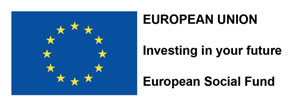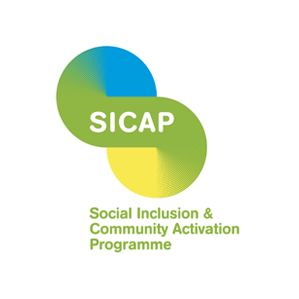“REFLECTIONS”
Background
The Dublin Inner City Community Co-operative Society Limited (‘the Coop’) is an alliance of 13 grassroots inner-city community development organisations which have come together to ensure the much-needed development and delivery of social, economic and cultural services continue within our communities. All 13 Coop member organisations receive funding via the Coop under the national Social Inclusion Community Activation (SICAP) Programme and operate in the most disadvantaged areas of Dublin’s inner city.
South West Inner City Network (SWICN) is one of the 13-member organisations in the Coop and works to respond to the complex needs of an area which is subject to social disadvantage, inequality, much physical neglect, large scale environmental decay, poor infrastructure, substandard housing and a lack of recreational facilities. The south west inner city has a mixed community and has the highest amount of local authority flat complexes in the state. Pertinent to this case study the south west inner city also has a large Muslim population.
Who the target group(s) are?
This Coop case study, titled Reflections, highlights aspects of the work undertaken by the Clubhouse- SWICN’s Youth Service-to engage with young women in the Amal Women Association (Amal for short). Amal is an Islamic Women’s Association based in the Mosque on South Circular Rd in Dublin 8 and aims to provide culturally specific services for women and children from Muslim and non-Muslim backgrounds in Ireland. Over several years, the Coop has been supporting the development and activities of Amal, targeting the younger women and girls, with the aim of exploring identity, rights, empowerment and cultural differences.
The women and young women who are members of Amal and Amal Youth are from the inner city and other parts of Dublin. Amal is based in the Mosque on the South Circular Road in Dublin 8, and is a place where Islamic women can gather in comfort and safety. Islamic parents know their young women and girls are safe and well looked after while attending the Mosque and as such permit them to attend Amal, and to collaborate with SWICN.
An essential element of the work of the Coop is with ‘hard to reach’ target groups, whose needs are often many, diverse and complex .Successful interventions respond to the needs, characteristics, and local circumstances of the hard to reach group, To this end the Coop assists and supports people ‘where they are at’, be that physically, socially, economically, culturally, and/or emotionally, and therefore our services are not solely based on where individuals are from or where they reside. We work with the young women and girls in Amal because they are from a minority group facing very specific challenges growing up and living in Ireland. However, we do not ask them where in Dublin they live, as given the focus of our work with them and the fact that they gather collectively in the inner city in Dublin 8, the location of their homes is irrelevant. What is most relevant, and common to them all, is their shared lived experiences, and as such we work collectively with them as a group dealing with those experiences.
Background to the subject of this Case Study
The subject of this video is a review and reflection of the work that SWICN Clubhouse has carried out in collaboration with Amal over the last two years. During this time SWICN & Amal have produced two short films which address issues that face young people born in Ireland to migrant parents.
The first film is called ‘My Hijab – My Choice’ and addresses an EU High Court ruling that allows companies to prohibit their staff from wearing visible religious symbols in the workplace. This issue was very important to young women wearing a hijab, creating anxiety and uncertainty for their futures. As part of the film the young women produced and wrote the lyrics for a one minute rap song which allowed them express their views through modern music.
In 2018 young women from Amal joined with young women from the Clubhouse and created a second film ‘What a Day’ as part of REEL YOUTH Festival1. This film addresses the issues of discrimination, being different, and the consequent realities that these girls face in their everyday lives.
The issues addressed in both films, ‘My Hijab – My Choice’ and ‘What a Day’, were decided by the young women themselves and as such both projects were entirely youth led.
The SICAP Case Study video, ‘Reflections’, is the Amal’s third video.
SICAP Goal and theme(s) addressed in the Case Study video:
This case study addresses SICAP goal 1 under the following themes:
- Theme 1:1 – promote community engagement and stronger communities
Through its work with the young women in Amal several barriers to social capital were identified, such as perceived differences in cultural background, language spoken and accent, racism and differences in attitude towards education, authority, religion and alcohol. A key point is that there is often limited social interaction outside school hours. This is particularly of concern among secondary pupils. - Theme 1:4 – promote collaborative engagement
The Coop’s/SWICN’s involvement was critical to the successful outcomes of the work highlighted in this case study. SWICN/The Clubhouse has the trust of, and access to the local community which statutory agencies could seldom hope to achieve. Community organisations like SWICN have the ability and commitment to be flexible and creative in their responses to local communities or specific target groups. Without this kind of local link collaborations such as this one would be limited in the success they could achieve.
What role SICAP played?
SICAP funding is the lynchpin for work with this target group. While it is important to note that the two videos which the Amal group made (separate to this SICAP Case Study video) were not directly funded by SICAP, the planning, developmental and preparatory work could not have taken place without the managerial and oversight role played by SICAP funded staff. Without SICAP funding SWICN would struggle to remain in existence or at best its services would be severely curtailed. SICAP funding enables SWICN to provide a wide suite of services in the Dublin 8 area including the activities with the Amal Group.
What outcomes were achieved?
- The confidence gained by the young women who were involved in making the two videos was clearly demonstrated by the fact that they submitted their ‘What a Day’ video to the REEL YOUTH Festival. The making of the SICAP case study video has enabled the participants to reflect on the process of making the two videos and to re-iterate the key messages contained in both.
- Two of the young women also took on the role of Master of Ceremony at the REEL YOUTH Festival award ceremony.
- The ‘What a Day’ video won Best Short Film in the Creative Tech Fest2 2018.
- The young women developed their capacity in the quality of their film-making skills.
- They developed their self -expression and gave voice to their already well-developed political awareness.
- Expressing themselves on a public platform i.e. the video being on YouTube, afforded these young women a sense of fulfilment, achievement and self-empowerment.
- The young women were inspired for the future e.g. one woman realised that she was interested in journalism and intends to pursue it as a career.
Participating with REEL YOUTH created a solid focus/motivation e.g. real deadlines / fun and competitive i.e. knowing that others were making a film / being part of something bigger. The young women also met other young people and exchanged numbers. - In all three videos the young women were given a voice on issues they felt strongly about and a medium through which to express those voices that was relatable to their young modern lives. They were able to express this voice through activities that were fun, enjoyable and mirrored their interests as young people (music, film, rap).
What lessons were learned?
- Managing expectations – i.e. split the age groups resulting in more manageable groups and allowing us to cater more specifically for age groups needs. The initial group was quite large and was challenging to manage.
- Be really clear about how long a video is in order to avoid having to cut participants out because it’s too long and causing upset.
- Putting the video on YouTube raised issues in terms of leaving the young women open to negative comments and criticism. The learning is to think about putting such work on social media at all in future, or about putting supports in place regarding how to deal with the impact of doing so.
- Young people from minority backgrounds have much to say about Irish society and their day-to-day lived experiences. Some of these ‘home truths’ may be difficult for society in general to hear as they may be contrary to how we like to see ourselves. Nevertheless we need to hear such views and facilitate their expression.
- When given a platform young people are more than capable of expressing their views passionately, articulately, intelligently and creatively. We ignore them at our peril.
Click on the link below to access the video:


